The International Training Workshop on Frontiers of Quanta to Cosmos Physics (FQCP2025) was successfully held in Beijing and Hangzhou, China, from November 1 to 14, 2025. It is organized by International Centre for Theoretical Physics Asia-Pacific (ICTP-AP) of the University of Chinese Academy of Sciences (UCAS), and co-hosted by the Hangzhou Institute for Advanced Study (HIAS) and the International Centre for Theoretical Physics (ICTP), supporting by Chinese Academy of Sciences Funding Program for the Science and Technology Training Workshop for the Belt and Road and Developing Countries. The event brought together 33 participants from more than ten countries, including China, Morocco, Spain, Thailand, the United States, Italy, Pakistan, India, Iraq, and Algeria, to explore cutting-edge developments in quantum physics, cosmology, and gravitational theory. This year marks the start of UN's “Science for Sustainable Development Decade” and UNESCO's “International Year of Quantum Science and Technology”. FQCP2025 is ICTP-AP's important practice to respond to these two major international events.
The opening ceremony was held on the morning of November 2 at the Sino-Danish College Lecture Hall on the Yanqihu Campus. The ceremony was hosted by Dr. Min Zhang, Office Director of ICTP-AP. The agenda included a brief introduction of ICTP-AP, opening remarks by the two Vice Presidents of UCAS, Prof. Xiao Lin and Prof. Yue-Liang Wu (Director of ICTP-AP) and international representative by Prof. Giovanni Villadoro, and a speech by Yassine EI Mohtadi, a master's student from Morocco, on behalf of the participants. The session concluded with a group photo.
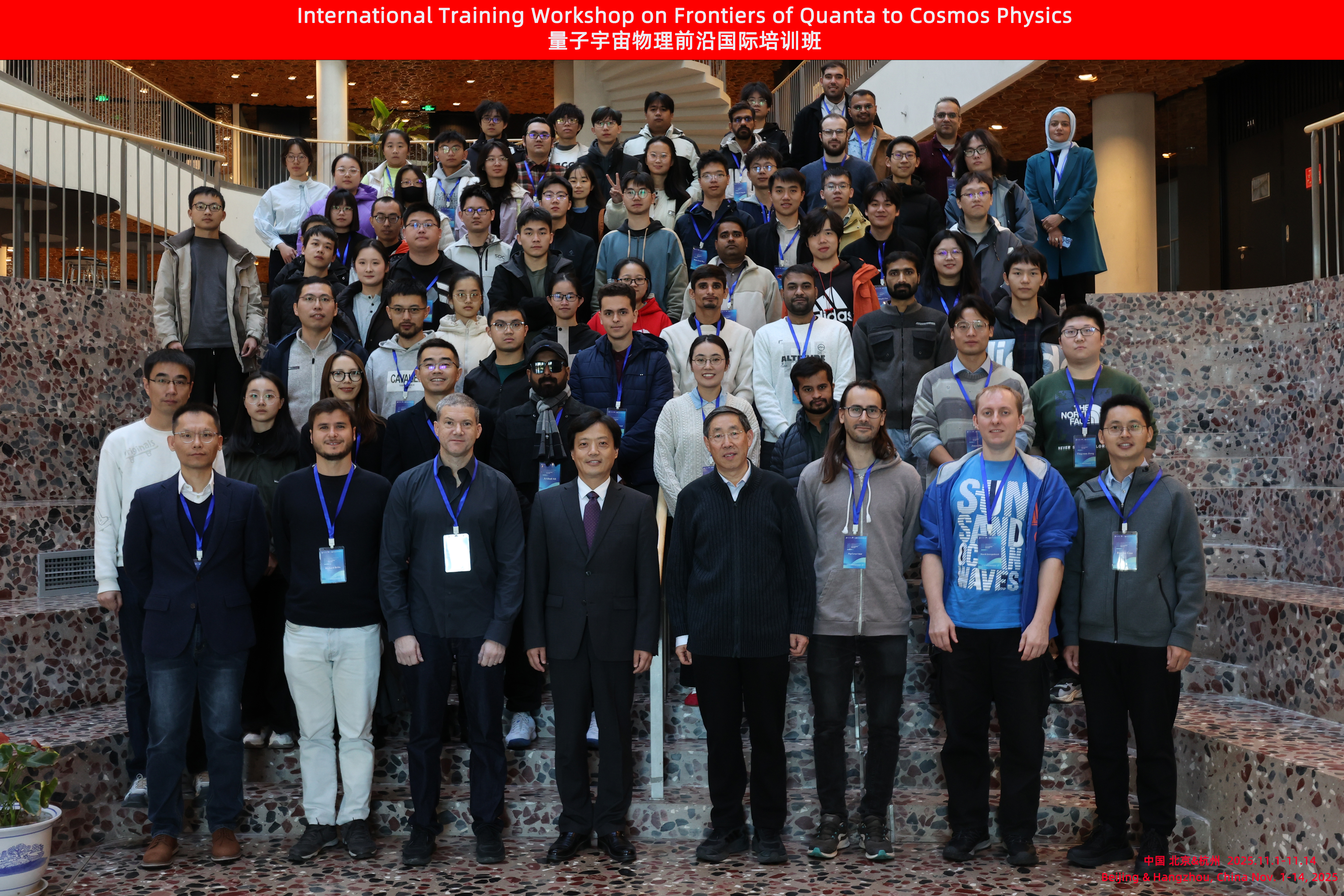
FQCP2025 featured a rich program of lectures, seminars, and interactive sessions on topics around gravity and field theories, gravitational waves and black holes, particle physics beyond the Standard Model, history of science and technology. 15 distinguished experts from renowned universities and research institutions both in China and abroad gave presentations. Yue-Liang Wu opened the workshop with a keynote speech on“The Unification Theory from Spin Dynamics”. Atish Dabholkar, director of ICTP, gave a remote presentation on the topic of quantum entanglement and gravity. Shinji Mukohyama, Shuang-Yong Zhou, Anna Tokareva, and Zheng-Wen Liu delivered a series of lectures on effective field theories, discussing the causality bounds, and their applications in cosmology and gravitational wave sciences. Giacomo Cacciapaglia, Giovanni Villadoro, and Ye-Ling Zhou lectured on particle physics beyond the Standard Model, connecting theoretical developments with modern search experiments. Marek Szczepanczyk, Pep Covas Vidal, He Wang, Richard Brito, and Jahed Abedi shared the recent advances in gravitational-wave detection and explored their implications for the search for new particles and tests of gravity. In addition, Heng Wen delivered a talk on the history of science, reviewing the early introduction of quantum mechanics in China.
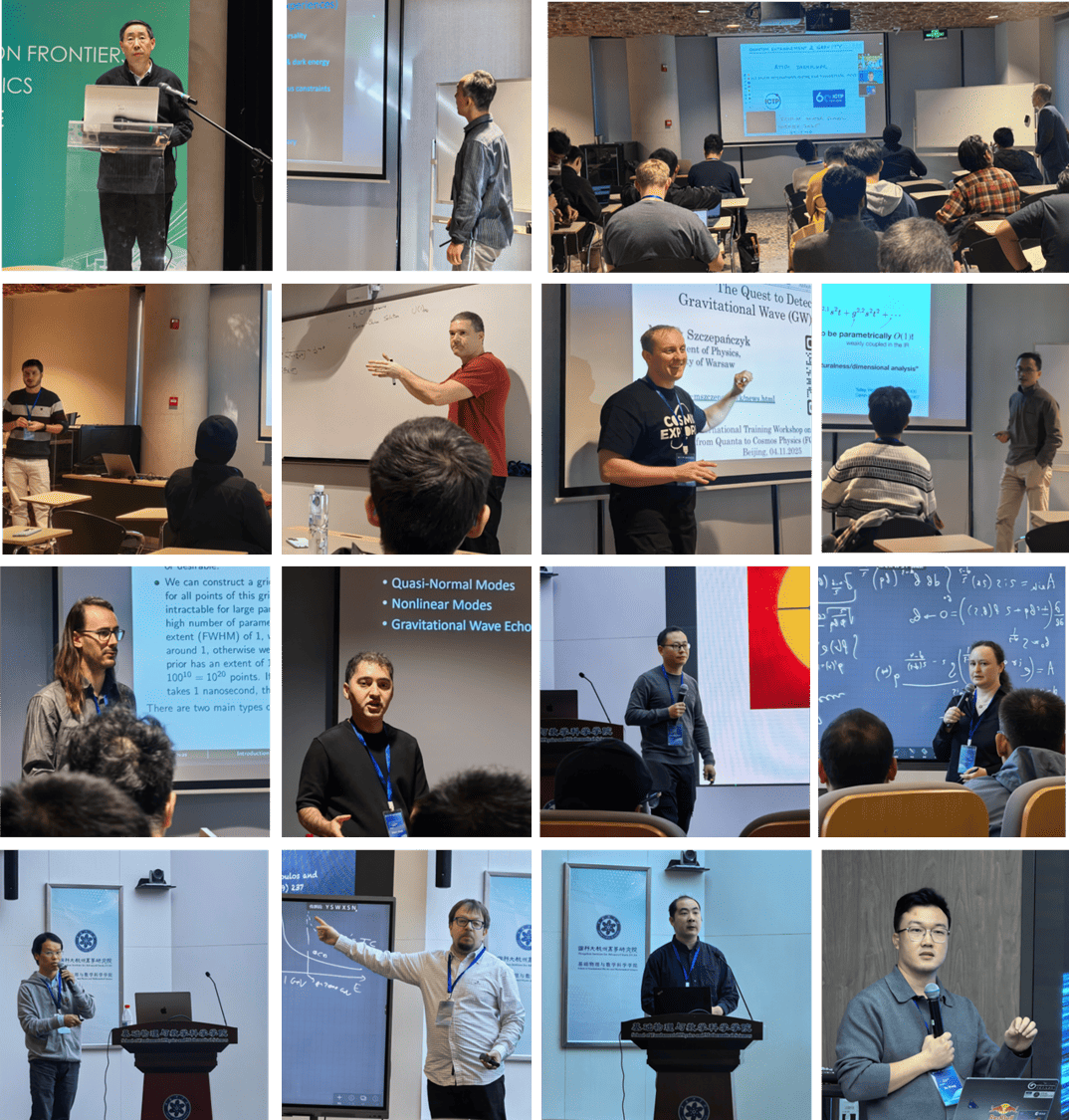
The workshop was further enriched by a series of cultural activities and campus tours in both Beijing and Hangzhou, which served to deepen academic and cultural exchange. These activities provided a vibrant journey through China's rich historical legacy and contemporary achievements. Participants visited the ancient Mutianyu Great Wall and enjoyed the tranquil beauty of Hangzhou's West Lake, immersing themselves in the nation's profound cultural heritage and picturesque landscapes. In addition, they took part in hands-on workshops where they crafted traditional lacquer fans and learned tie-dye techniques. The program also showcased China's technological advancement through visits to a modern Industrial Technology Park, the digital innovation hub Yunqi Town. The cultural exchange reached its culmination in a free-topic presentation session, where participants shared distinctive customs and landscapes of their home countries, enhancing mutual understanding and building global friendships through a celebration of diverse cultures.
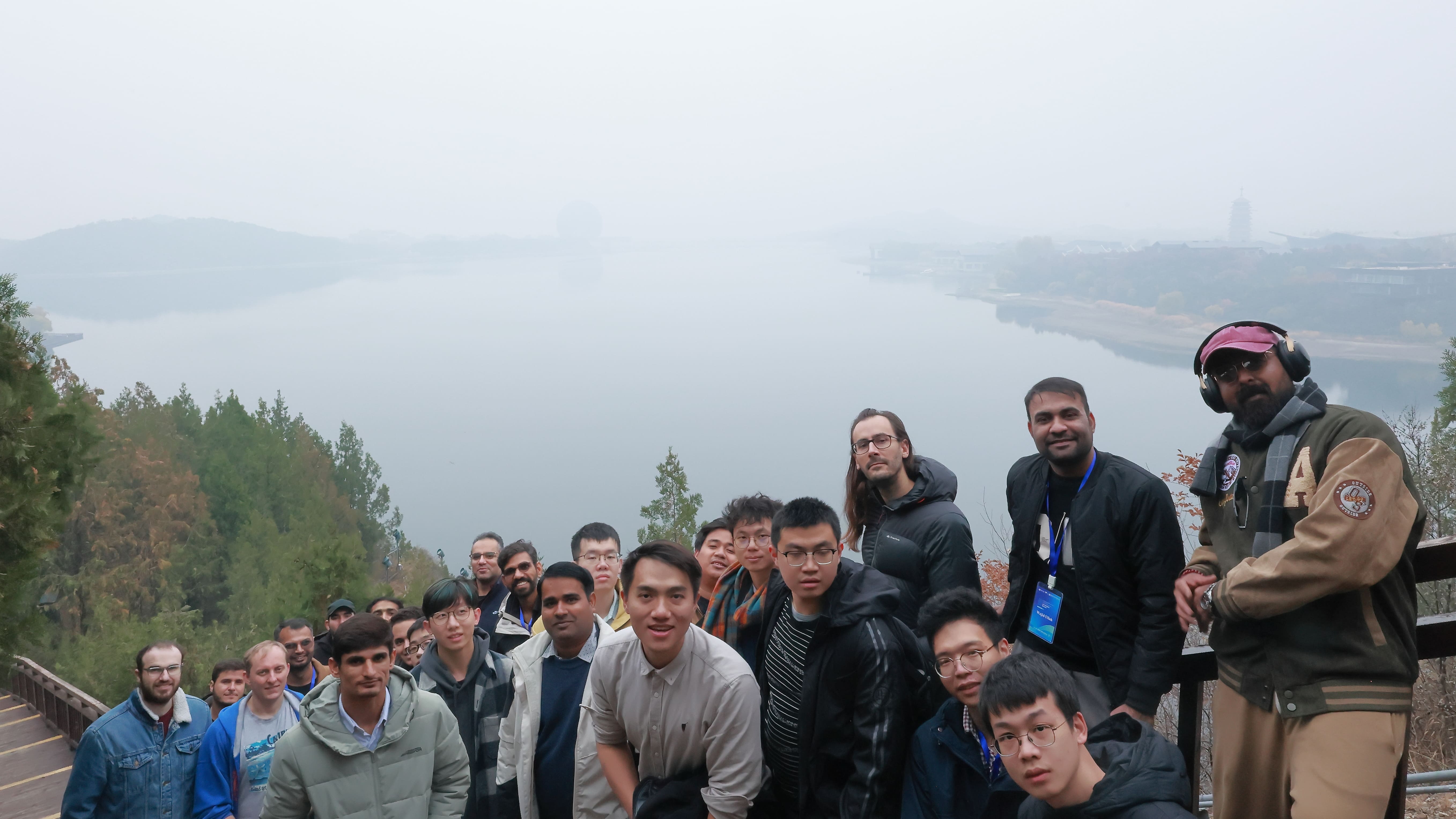

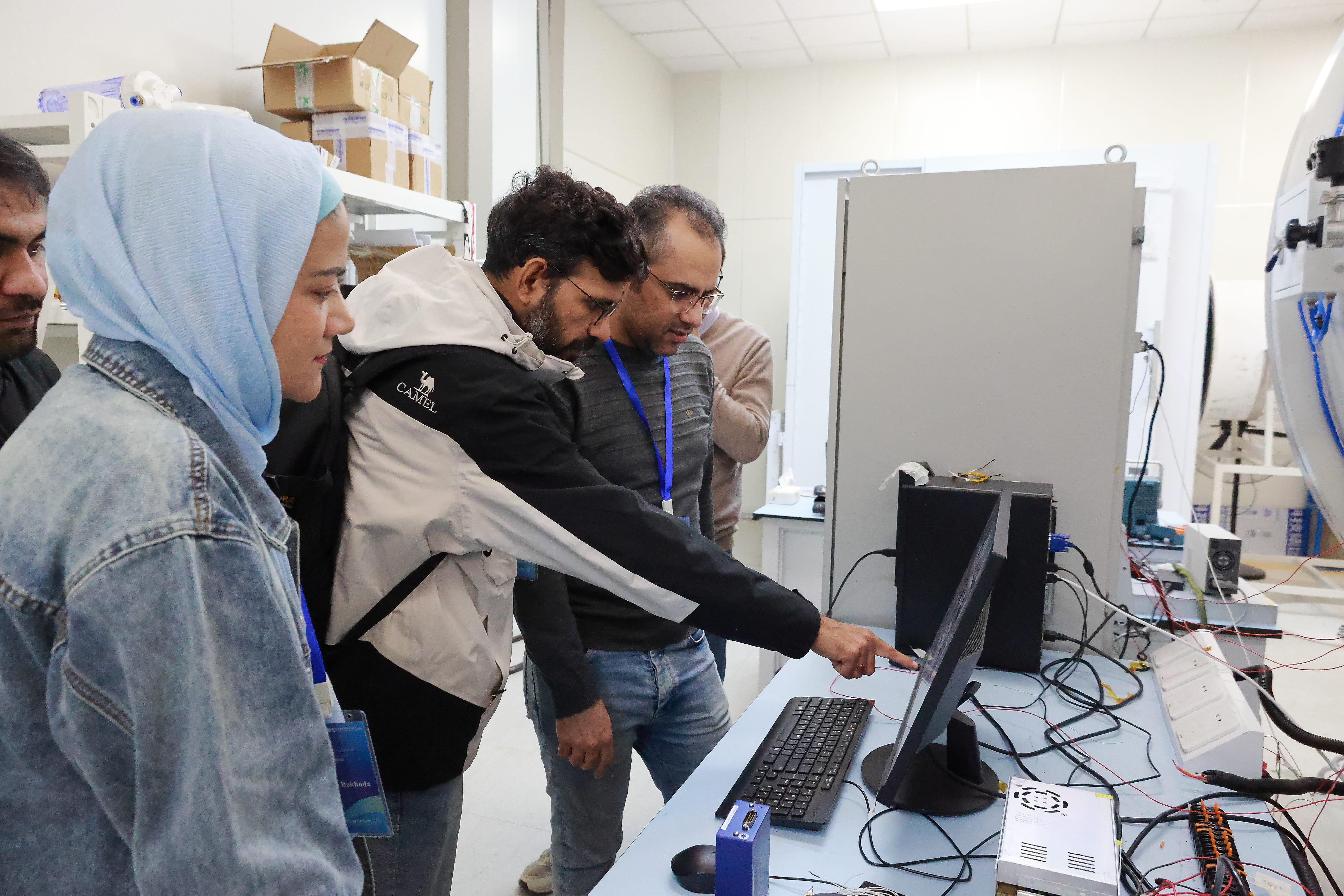
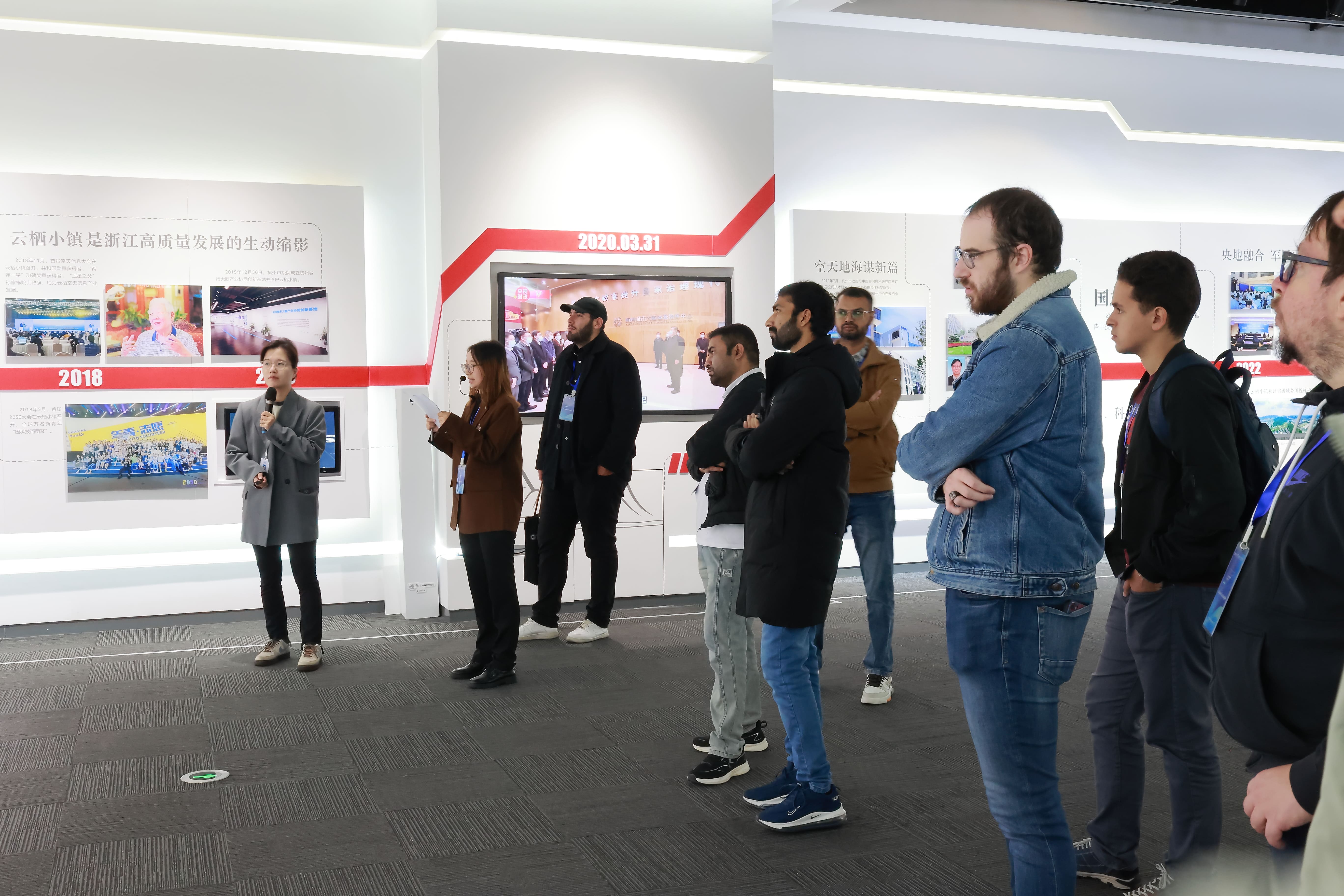
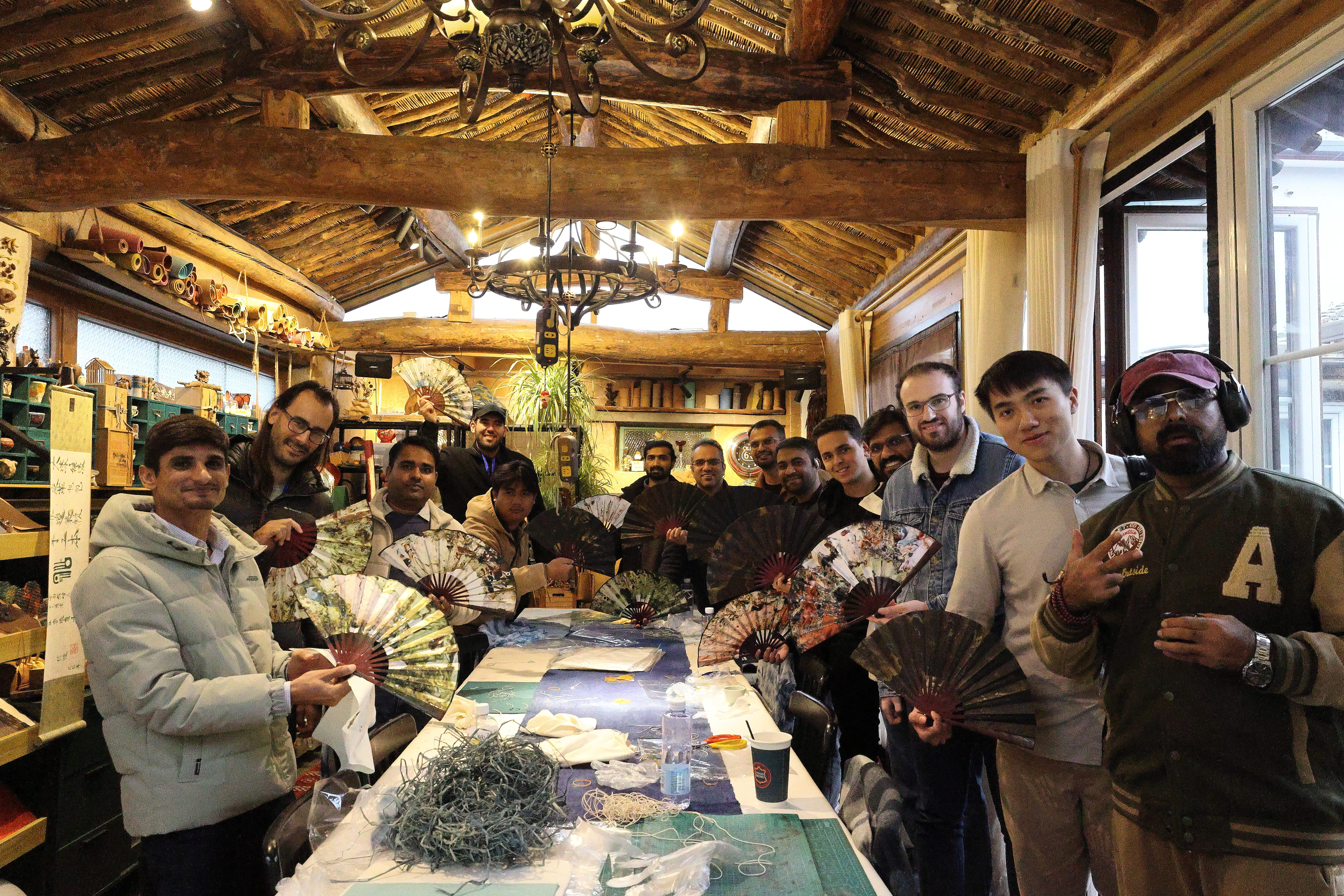
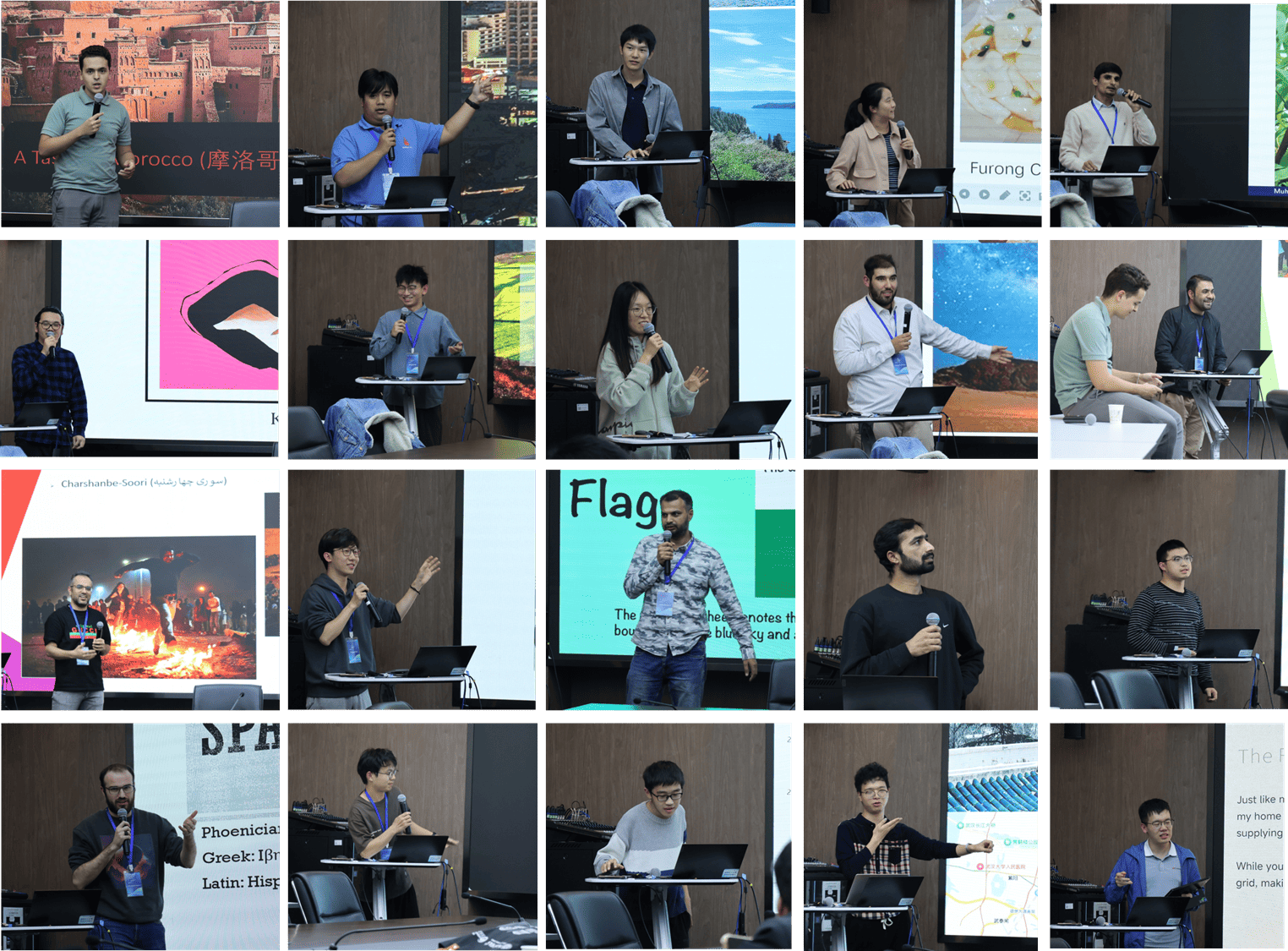
The closing ceremony was held on November 13 at HIAS. The program included a highlights video during FQCP2025, summary speeches from the organizing and co-organizing units, remarks by outstanding international trainees, and the presentation of certificates.
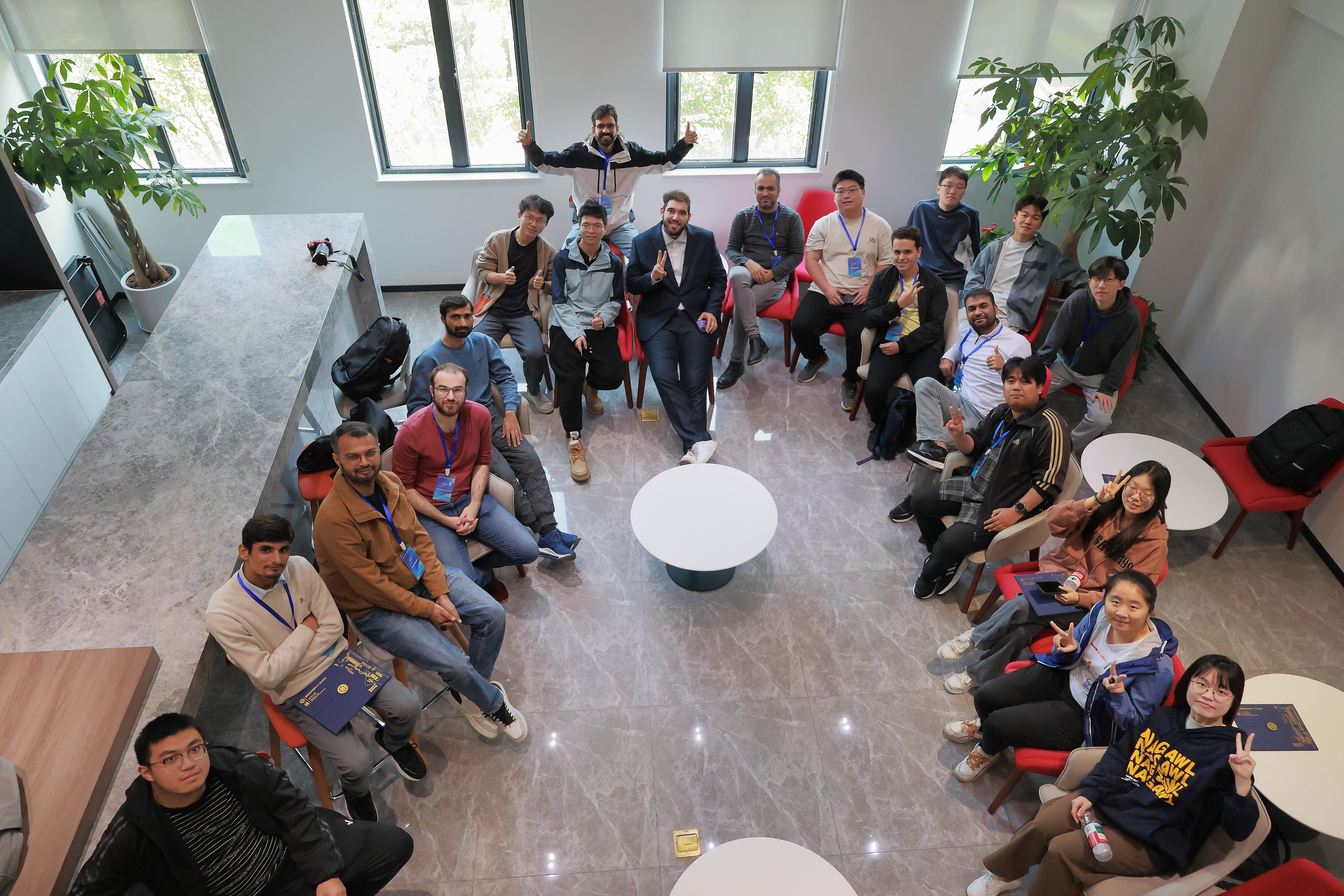
FQCP2025 provided a vital platform for young researchers to engage with leading experts, share insights, and build collaborative networks, aiming to inspire the next generation of scientists with international perspectives and innovative capabilities.





.jpg?x-oss-process=style/news)